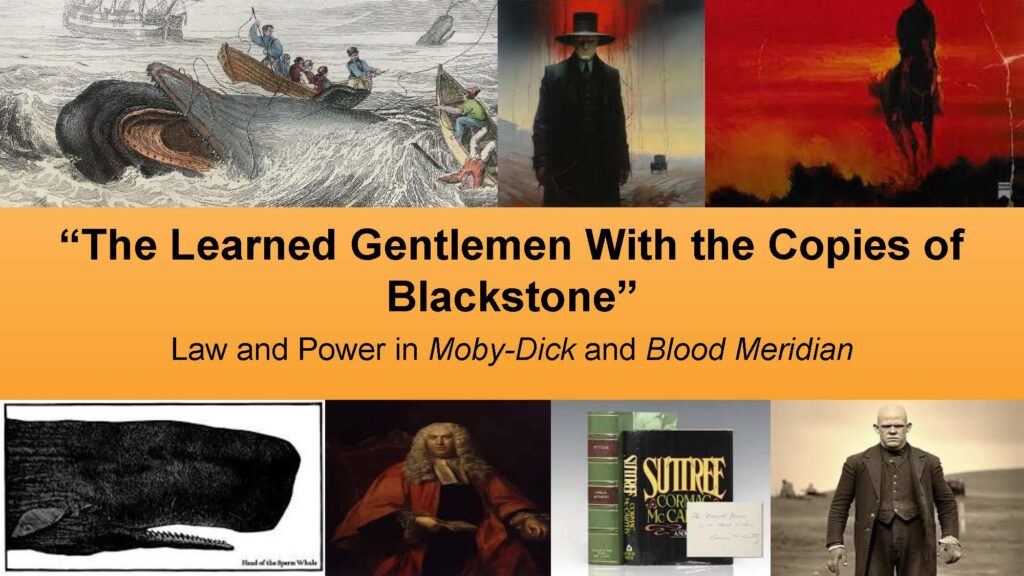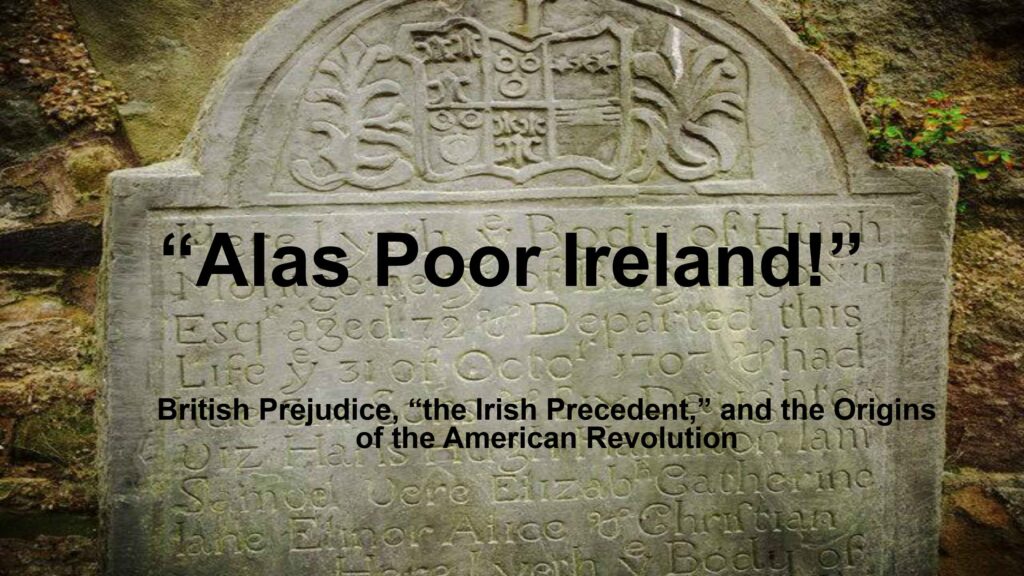David Salzillo ’24

The Learned Gentlemen with the Copies of Blackstone: Law and Power in Moby-Dick and Blood Meridian?
“Alas Poor Ireland!”: British Prejudice, “the Irish Precedent,” and the
Origins of the American Revolution
David Salzillo ’24, American Studies and History major
Faculty Mentor: Dr. Edward Andrews, History and Classics
Poster Presentation: Wednesday, April 24, 1:30 – 3 p.m.
Oral Presentation: Wednesday, April 24, 3:48 p.m.
The Learned Gentlemen with the Copies of Blackstone: Law and Power in Moby-Dick and Blood Meridian?
McCarthy’s novel Blood Meridian (1985) owes a great debt to Herman Melville’s Moby-Dick (1851). Nowhere is this clearer than in McCarthy’s thematic preoccupations and in his characterization of Judge Holden. Judge Holden indeed appears to be a composite of multiple characters in Moby-Dick—including Captain Ahab and the White Whale itself. However, another and perhaps more fascinating influence on McCarthy’s Judge Holden can be found in one of Moby-Dick’s many narrative digressions. Namely, ‘the learned gentleman with the copy of Blackstone,’ found in Chapter XC of Moby-Dick, significantly shaped how McCarthy chose to portray Judge Holden, the law, ‘civilization,’ and ‘progress.
“Alas Poor Ireland!”: British Prejudice, “the Irish Precedent,” and the
Origins of the American Revolution
In an effort to help historians better consider the anti-colonialist roots of the American Revolution, my paper establishes that the American colonists, noticing the presence of anti-American prejudice among mainland Britons and primarily thinking back to Ireland’s subjugation, came to see ulterior motives in Britain’s centralization of empire in America. Certain key events in the Imperial Crisis, like the Quebec Act and the application of Irish governmental/military conquest precedents to the Americas, only served to heighten American concerns to a fever point. Consequently, the legacy of the American independence movement owes a great debt to the dreaded Irish precedent.







